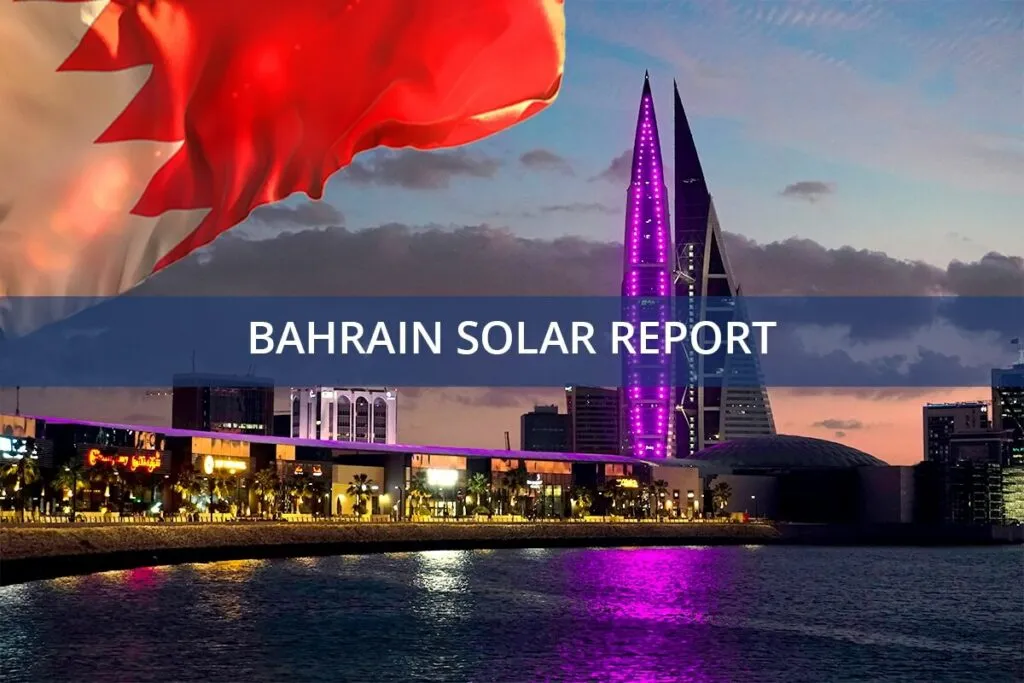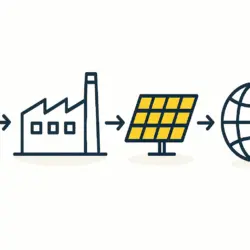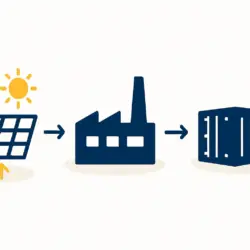Bahrain has received four competitive bids for a 44 MW solar PV power project in the Sakhir region, with proposals ranging from $36 million to $147 million. This venture, set to be developed on a build-own-operate-transfer (BOOT) basis, marks a strategic move in the Kingdom’s sustainable energy development.
Bahrain solar project investment opportunities and proposed capacity
The Bahrain Economic Development Board (EDB) has identified the Kingdom’s burgeoning solar PV sector as a prime opportunity for investment. With an ambitious target of 700 MW, the sector is expected to attract up to $1.8 billion in investments. The Sakhir PV project stands as a crucial milestone in this renewable energy agenda, bringing Bahrain closer to its overall goal. For further insights into Bahrain’s solar initiatives, visit Bahrain Solar Panel Manufacturing | Market Insights Report.
According to Meed, a key business intelligence provider for the Middle East, the lowest bid for the solar power project was $36 million, submitted by a joint venture between UAE-based Alfanar and the Saudi Energy Efficiency Services Company (Tarshid). Other notable proposals came from companies bidding on the solar project, including a $93 million offer from Saudi Arabia’s Acwa Power, $130 million from China’s Power China, and a $147 million bid from a consortium of China National Building Material Company (CNBM) and Haifa Group.
Bahrain solar project and the Kingdom’s commitment to renewable energy
This project is integral to Bahrain’s broader strategy to transition toward renewable energy and reduce its carbon footprint. Driven by a growing emphasis on sustainability, the Kingdom is committed to diversifying its energy portfolio and enhancing energy security. The Sakhir PV project is expected to contribute significantly to these efforts by delivering clean power to bolster the country’s economic growth. For more on Bahrain’s renewable energy strides, see the Bahrain & German Embassy Launch Solar Project in Manama.
Structured on a BOOT basis, the Sakhir project enables private companies to finance, build, and operate the facility for a set period before transferring ownership to the government. This model is gaining traction across the renewable energy sector, as it allows governments to leverage private-sector expertise and resources.
Saudi Arabia’s Solar Power Growth and Regional Impact
Neighboring Saudi Arabia, a regional leader in solar energy, has announced plans to construct the world’s largest renewable energy complex with a planned capacity of 200 GW. Located in the Kingdom’s western region, this ambitious project is expected to attract substantial investment from both domestic and international stakeholders.
The Saudi government has also launched several projects to bolster solar energy development, including a $50 billion fund to finance renewable energy initiatives. These efforts are designed to reduce the Kingdom’s dependence on oil, create jobs, and diversify the economy. With a projected solar power capacity of 40 GW by 2030, Saudi Arabia is positioning itself as a global leader in renewable energy.
Strategic Partnerships Shaping the Middle East Energy Sector
A recent partnership between the Saudi Ministry of Energy and the King Abdullah City for Atomic and Renewable Energy (KACARE) marks a key development in the Middle East’s renewable energy landscape. This collaboration has resulted in several agreements to advance the Kingdom’s renewable energy projects, with a particular focus on solar power.
Key agreements include developing a 1.5 GW solar power plant in the Al-Aflaj region and a 1.6 GW plant in the Al-Qaisumah region. Additionally, a memorandum of understanding has been signed with the Saudi Electricity Company to integrate renewable energy sources into the national grid.
This high-level collaboration underscores Saudi Arabia’s dedication to renewable energy and its strategic ambitions. The Kingdom’s efforts to attract international investors and partner with global firms highlight its goal of becoming a dominant force in the renewable energy market.



